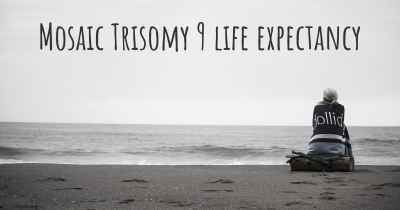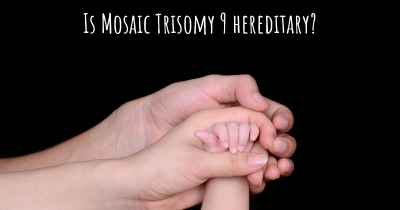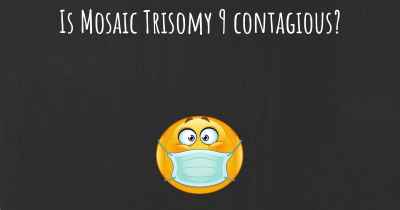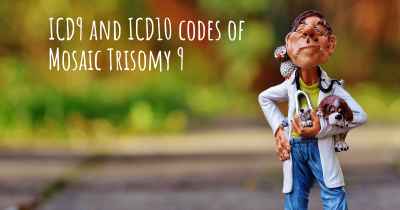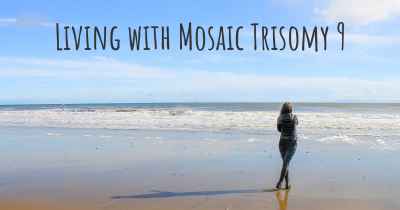How do I know if I have Mosaic Trisomy 9?
What signs or symptoms may make you suspect you may have Mosaic Trisomy 9. People who have experience in Mosaic Trisomy 9 offer advice of what things may make you suspicious and which doctor you should go to to receive treatment

Mosaic Trisomy 9 is a rare chromosomal disorder that occurs when there is an extra copy of chromosome 9 in some cells of the body. This condition is characterized by a wide range of physical and developmental abnormalities, which can vary greatly among affected individuals. Mosaic Trisomy 9 is typically diagnosed through genetic testing, such as a chromosomal analysis or a karyotype.
One of the key features of Mosaic Trisomy 9 is the presence of three copies of chromosome 9 instead of the usual two. However, the extent and distribution of the extra chromosome can vary from person to person. Some individuals may have the extra chromosome in only a small percentage of their cells, while others may have it in a larger proportion.
The signs and symptoms of Mosaic Trisomy 9 can be quite diverse and may affect multiple organ systems. Common physical characteristics include facial abnormalities, such as a small head, low-set ears, a flat nasal bridge, and a small jaw. Individuals with this condition may also have skeletal abnormalities, heart defects, kidney problems, and intellectual disabilities.
Diagnosing Mosaic Trisomy 9 can be challenging due to its rarity and variable presentation. If there is a suspicion of this condition based on physical features or developmental delays, genetic testing is typically recommended. A chromosomal analysis involves examining a sample of cells, usually obtained through a blood sample, to determine the presence of an extra chromosome 9. A karyotype, which is a visual representation of an individual's chromosomes, can provide further information about the extent and distribution of the extra chromosome.
It is important to note that Mosaic Trisomy 9 is a complex condition, and its prognosis can vary widely. The severity of symptoms and the impact on an individual's health and development depend on the specific genetic changes and the organs affected. Therefore, it is crucial to consult with a healthcare professional or a geneticist for a comprehensive evaluation and appropriate management.
